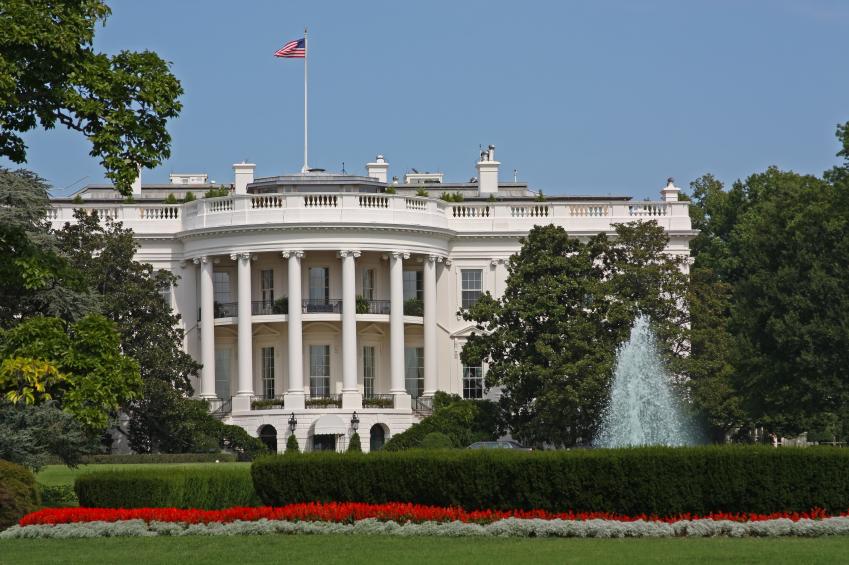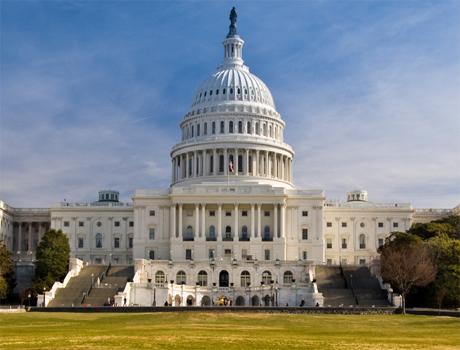Government Lawyers in the Making
Innovative Externship on the Federal Government in D.C. Offers Columbia Law School Students the Chance to Spend a Semester Working Full Time for Federal Agencies
New York, March 11, 2013—Nick Moscow ’11 first heard about Columbia Law School’s Externship on the Federal Government in Washington, D.C. when Dean David M. Schizer outlined the new program in a spring 2010 talk about changes to the upper-year curriculum.
Launched the following fall, the semester-long externship on government lawyering is just one of many recent offerings designed to help students gain the practical skills they need to bridge the gap between theory and real-world practice.
“This externship is part of a broader effort to enhance our third-year curriculum,” said Dean Schizer, the Lucy G. Moses Professor of Law and Harvey R. Miller Professor of Law and Economics. “The world is changing in exciting ways, and our curriculum has to change as well, so that we continue to offer students deep and rigorous engagement with the latest trends in our profession.”
Moscow didn’t need much convincing from Dean Schizer, or anyone else. Hoping to jumpstart a career in the field of national security, the native New Yorker—who passed out water bottles at the World Trade Center on September 11, 2001—came to Columbia Law School in part because of its faculty members’ government service experience. The chance to work in government as a law student was too good to pass up.
Moscow applied to the externship program, was accepted, and, in the fall of 2010, became one of nine students to spend a semester in D.C. working full time. He performed research at the Law and Policy Office in the National Security Division of the Department of Justice, including writing memos for decision-makers on the lawfulness of government actions. The experiences Moscow had there proved invaluable when he began his post-graduation job search.
“I could offer the externship as relevant to a policy position in the field of national security legal policy,” he said. “That’s an experience not very many people have.”
Immediately after graduation, Moscow began a job as a justice adviser at the Department of State where he worked on criminal prosecutions in Afghanistan. Earlier this year, he became a clerk for Judge Richard C. Wesley of the U.S. Court of Appeals for the 2nd Circuit. He plans to return to national security work when his clerkship wraps up.
The D.C. externship was spearheaded by Dean Schizer and Social Justice Initiatives Dean Ellen P. Chapnick, who recruited Michael L. Shenkman ’06 to help establish the Law School’s presence in D.C. and to teach the accompanying seminar.
The program is on Chapnick’s list of things she is most proud of at the Law School.
“It is a really solid complement to the Law School’s more traditional teachings in public law,” she said. “It’s a form of experiential learning that combines a substantial seminar with closely related field work for a rich experience in theory and practice. For students, it’s about creating and meeting their own expectations of what they will learn.”
The program has continued to expand, with 22 students taking part this year. Originally offered only in the fall semester, third-year students now can enroll in the program for either the fall or spring semesters; second-year students can participate in the spring. Recent Columbia Law School graduates who have gone on to work in the federal government mentor the externs and help facilitate social and networking events through the Federal Government Service Committee.
More than 25 offices in various federal agencies have hosted Columbia Law School students as externs. First-time placements this year include positions at the FBI, the U.S. Patent and Trademark Office, the Domestic Policy Council at the White House, and the newly created Consumer Financial Protection Bureau.
Externs have worked on implementation of the Affordable Care Act, researched U.S. obligations under international treaties, investigated violations of SEC rules, litigated cases related to international trade, and drafted civil appellate briefs, among other tasks.
After an intensive four-day course in government ethics at the start of the semester, students begin their placements. They work at least 40-hour weeks and participate in a seminar on government lawyering. The course features candid conversations with leading government officials—including U.S. Supreme Court Justice Stephen G. Breyer, former Department of Defense General Counsel Jeh C. Johnson ’82, and U.S. Solicitor General Donald B. Verrilli, Jr. ’83—who either visit the class or invite students to their offices.
Lauren Barlow ’13 externed last year at the Senate Republican Policy Committee, which works to advance Republican policy initiatives. She handled a variety of work, including summarizing legal issues in pending U.S. Supreme Court cases.
“To understand the Senate and how our government really works, you have to go there and be around it,” Barlow said. “That aspect was incredibly valuable.”
Columbia Law School alumna Michelle Morales ’96, deputy director of the Office of Policy and Legislation in the U.S Department of Justice’s criminal division, has brought several students on board as externs.
Students who want careers in government have to show that they “have a true interest and commitment” to public service, she said.
“This experience will have a lasting impact on opportunities later in their careers—even if it’s not immediate,” she said. “This is going to give them an advantage because they have an opportunity to exhibit the commitment to this type of work early on.”
The hands-on nature of the D.C. externship made it a perfect fit for Brian Mulhall ’13, who is spending his final semester this spring as an extern at the U.S. Department of State. The former Navy lieutenant spent five years in the service before beginning law school. He said working at the State Department allows him to see the international laws he studies applied in practice.
“I’m actually seeing what I learned about in class being implemented day to day,” said Mulhall, who will start a job with the Department of Justice Honors Program after graduation.
Students who are willing to work hard find plenty to do in D.C., said Moscow, the 2011 graduate who externed in the Department of Justice’s National Security Division.
Because of the sensitive nature of the work he was doing, Moscow was not permitted to be in the office alone. But he was there as often as he could be, working on whatever assignments his supervisors gave him.
“I could be tied for first to arrive, but I couldn’t be first by myself,” he said. “I worked from the moment someone got there to the moment the last attorney left.”

